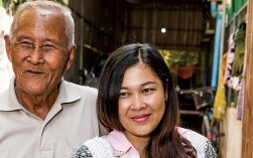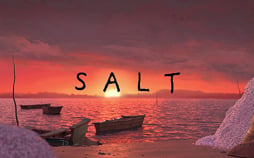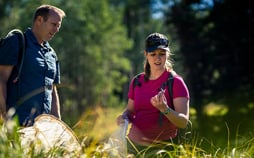Cambodian Histories Preserved by BYU Researchers
Video:BYU professors and students are gathering stories from survivors of life under the Khmer Rouge regime.
June 2022
As Hurricane Rosa hurtled toward Baja California in October 2018, two BYU students spotted a valuable research opportunity.
Utah County, still smoldering from the devastating Pole Creek megafire that same year, was forecast to receive days of heavy rain in the wake of the hurricane’s landfall. For months Trevor Crandall and Erin Jones had been collecting water samples in Utah Lake’s tributaries to understand how land use and wildfires affect stream and lake health. Now they had a rare chance to observe how back-to-back extreme events influenced water quality and quantity.
“In just a couple of hours, we got all the instruments ready to deploy,” Jones said. “That evening we finished installing our last sampler just as the first drops began to fall on the burn scar. The data we collected overnight was unlike any other.”
The study was published in the journal PLOS ONE in a special issue on freshwater ecosystems, and the data may be used to shape policy and to prepare for and respond to future extreme events.
Donations that support the inspiring learning initiative provide for hands-on, real-world learning like this.
Funds donated by alumni and friends of the university make experiences like these possible for thousands of students each year.
Read more at BYU News.

Video:BYU professors and students are gathering stories from survivors of life under the Khmer Rouge regime.

Video: Salt , which was directed and produced by BYU students, was screened at the 2021 Chicago International Children’s Film Festival.

Video: The BYU team’s goal is to piece together the first-ever phylogenic (genealogical) tree of all 6,300 known dragonfly species and their ancestors.